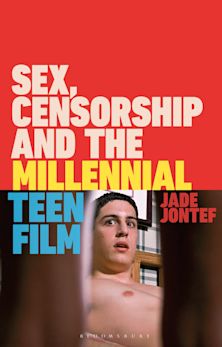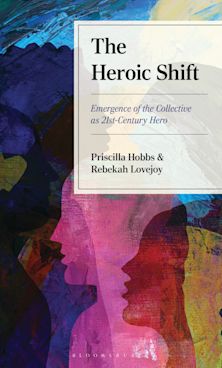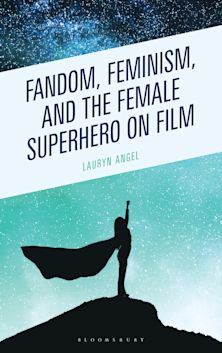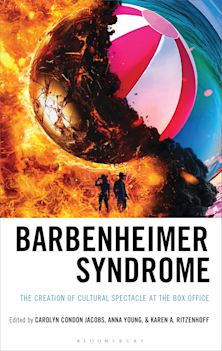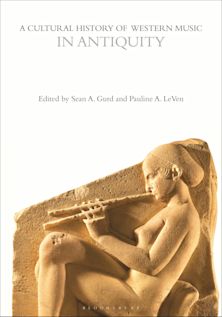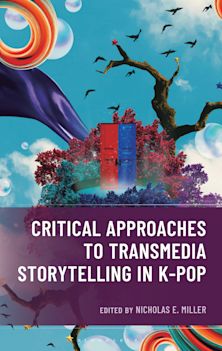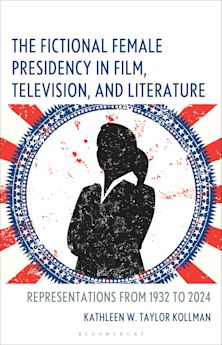The Pedagogy of Pop
Theoretical and Practical Strategies for Success
The Pedagogy of Pop
Theoretical and Practical Strategies for Success
This product is usually dispatched within 1 week
- Delivery and returns info
-
Free US delivery on orders $35 or over
Description
Media competes with public schools in terms of student engagement and time. However, the two needn't be mutually exclusive. The Pedagogy of Pop: Theoretical and Practical Strategies for Success discusses a variety of strategies and approaches for using social and mass media as tools through which teachers might improve schooling.
While there is a vast body of literature in this field, editors Edward A. Janak and Denise Blum have created a text which differs in two substantive ways: scope and sequence. In terms of scope, this work is unique in two facets: first, it presents both theory and practice in one volume, bridging the two worlds; and second, it includes lessons from secondary and postsecondary classrooms, allowing teachers on all levels to learn from each other. In terms of sequence, The Pedagogy of Pop draws on lessons from both historical and contemporary practice.
The introductory section of Janak and Blum's collection presents a pair of papers that use somewhat different approaches to examine the historical roots of contemporary critique. Part I presents a series of chapters designed to provide guidelines and theories through which educators on all levels can think about their practice, focusing more on the "why" of their approach than the "how." Part II presents a more "hands-on" approach by sharing a variety of specific strategies for incorporating pop culture in all its forms (technology, music, television, video games, etc.) in both secondary and postsecondary classrooms. The conclusion shows the praxis of teaching with popular culture, presenting a counterpoint to current thinking as well as a case study of the best of what can happen when popular culture is applied effectively.
Table of Contents
Contents
Preface
Acknowledgments
Introduction: The Past as Prologue
Chapter One - Can We Win the Future by Living in the Past? An Exploration of Nostalgia in Education, Jennifer Edelman and Edward Janak
Chapter Two - Professional Paradox: Teachers in Film and Television, Sheila Delony and Mikee Delony
Part One: Theoretical Analyses of Pop Culture
Chapter Three - Making a Modern Man: Disney's Literacy and Health Education Campaigns in latin and South America during WWII, Julie Prieto
Chapter Four - Uncovering Images of Teaching: Towards a Teacher-Activist Ideal, Sylvia Mac and Denise Blum
Chapter Five - "The Words We Write for Ourselves:" Confronting the Myths of Race, Education, and American Genius in Finding Forrester, Joanna Davis-McElligatt and Forrest Roth
Chapter Six - "If You Should Die Before You Wake..." Bart Simpson and the Genesis of Rebellion, Brian N. Duchaney
Chapter Seven - From Desperate Housewives to The Real Housewives of New Jersey to Simply House: Views on Family and Gender in Popular Culture, Amy Neeman and David Newman
Part Two: Improving Instruction, The Pop of Pedagogy
Chapter Eight - Editorial Cartoons as Education: Political Cartoons as Pathways to the Pedagogy of Popular Culture, Richard Ellefritz
Chapter Nine- iClickers & Voice-Over PPT: Using Technology to Engage Millennials in Learning, Bob Reese
Chapter Ten - Amending Eurocentric Narratives of African History in the U.S. Classroom: A Popular Culture Approach, Fred N. Waweru and Mwenda Ntarangwi
Chapter Eleven - Popular Culture and Teacher Education in the 21st Century: The Pedagogical Possibilities of Aliens in America, Ludovic A. Sourdot
Chapter Twelve - "How Does this Sound?" Using Language to Characterize Race in Middle-Earth, Jennifer Culver
Chapter Thirteen - "World Goin' One Way, People Another:" Using The Wire and Other Popular Culture Texts to Teach College Writing, Michelle Parke
Conclusion: The Future as Epilogue
Chapter Fourteen - I Don't Get It and That's Okay: Teaching Experiential Film Interpretation, Jade Lynch-Greenberg and esteban garcia
Chapter Fifteen - My Conversations with Ben: What This Mother Learned from a Ghost Boy about Bullying, Yvette Benavides
About the Contributors
Index
Product details
| Published | Dec 14 2012 |
|---|---|
| Format | Hardback |
| Edition | 1st |
| Extent | 258 |
| ISBN | 9780739176009 |
| Imprint | Lexington Books |
| Illustrations | 3 Tables |
| Dimensions | 9 x 6 inches |
| Publisher | Bloomsbury Publishing |














